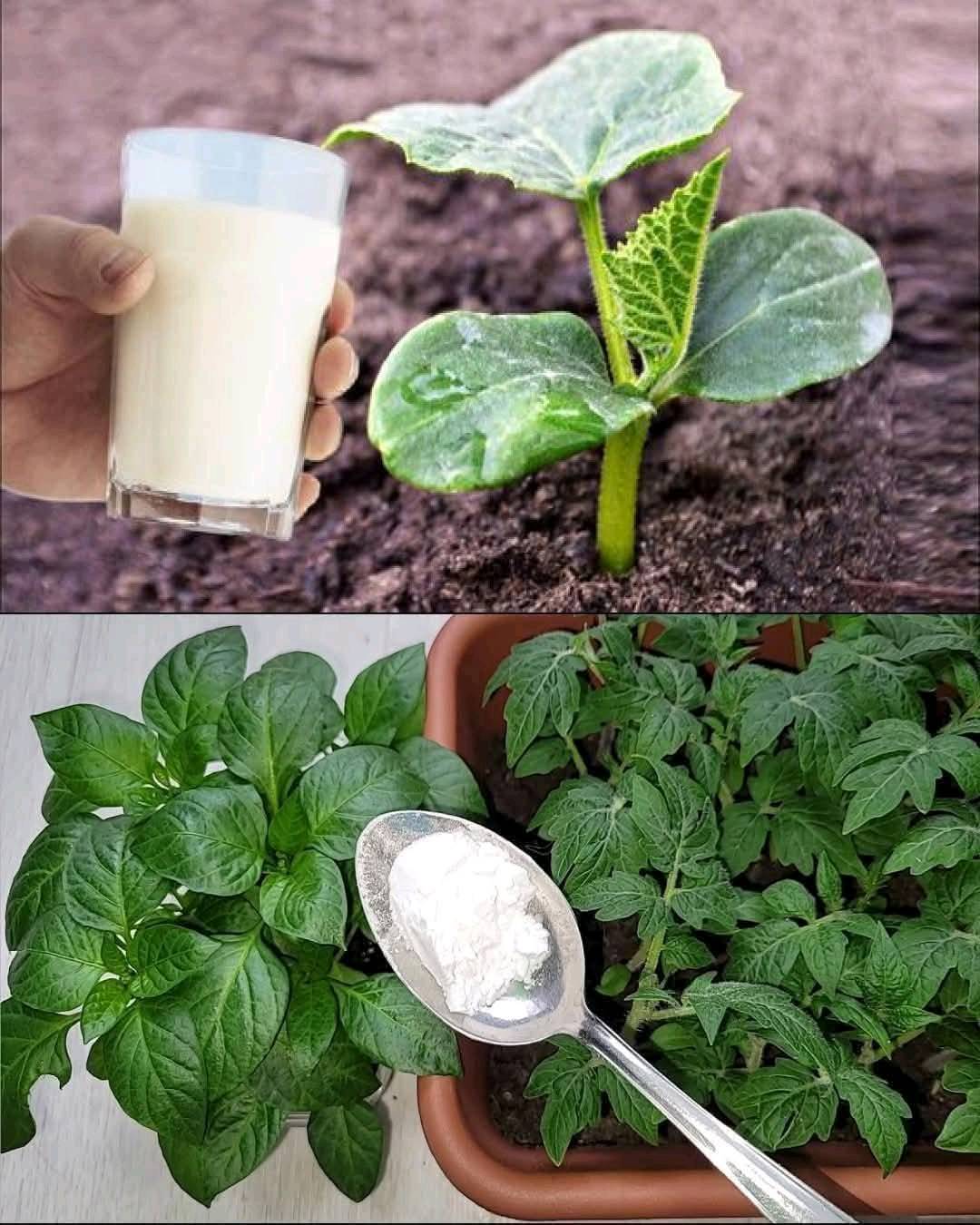Baking soda—it’s a pantry staple known for cleaning and cooking, but did you know it can also be a powerful tool in your garden? This affordable, all-natural substance offers multiple benefits for plants, soil, and gardening tools. Whether you’re a novice gardener or a green-thumbed pro, here are 10 clever uses for baking soda that will make your garden healthier, cleaner, and more productive.
1. Natural Fungicide for Plants
Baking soda can help fight off fungal infections like powdery mildew and black spot, common in humid or wet conditions. Simply mix 1 tablespoon of baking soda with 1 gallon of water and a few drops of liquid dish soap. Spray this solution on affected leaves weekly to prevent or reduce fungus without resorting to harsh chemicals.
2. Eco-Friendly Weed Killer
For weeds sprouting in cracks or around patios, baking soda provides a natural alternative to synthetic herbicides. Sprinkle a heavy dusting of baking soda directly onto unwanted weeds. The sodium will dehydrate and kill them without damaging nearby grass or flowers—just be careful not to overdo it near delicate plants.
3. Organic Pest Deterrent
Keep cabbage worms, aphids, and other soft-bodied pests away by mixing equal parts baking soda and flour. Lightly dust this mixture onto plant leaves. It irritates pests and discourages them from feeding, offering a non-toxic alternative to commercial pesticides.
4. Soil pH Balancer
Soil that’s too acidic can stunt plant growth. Baking soda is a mild alkaline substance that helps raise pH levels in overly acidic soil. Before applying, test your soil’s pH, then add small amounts (no more than 1 tablespoon per square foot) and monitor the results. This trick is particularly useful for vegetables that prefer neutral to slightly alkaline soil.
5. Sweeter Tomatoes
Tomatoes thrive in slightly acidic soil, but when the acidity is too high, it can affect their flavor. Sprinkling a little baking soda around the base of tomato plants can reduce acidity in the soil, helping the fruit develop a sweeter taste. Use sparingly—too much can disrupt nutrient absorption.
6. Compost Booster
Baking soda—it’s a pantry staple known for cleaning and cooking, but did you know it can also be a powerful tool in your garden? This affordable, all-natural substance offers multiple benefits for plants, soil, and gardening tools. Whether you’re a novice gardener or a green-thumbed pro, here are 10 clever uses for baking soda that will make your garden healthier, cleaner, and more productive.
1. Natural Fungicide for Plants
Baking soda can help fight off fungal infections like powdery mildew and black spot, common in humid or wet conditions. Simply mix 1 tablespoon of baking soda with 1 gallon of water and a few drops of liquid dish soap. Spray this solution on affected leaves weekly to prevent or reduce fungus without resorting to harsh chemicals.
2. Eco-Friendly Weed Killer
For weeds sprouting in cracks or around patios, baking soda provides a natural alternative to synthetic herbicides. Sprinkle a heavy dusting of baking soda directly onto unwanted weeds. The sodium will dehydrate and kill them without damaging nearby grass or flowers—just be careful not to overdo it near delicate plants.
3. Organic Pest Deterrent
Keep cabbage worms, aphids, and other soft-bodied pests away by mixing equal parts baking soda and flour. Lightly dust this mixture onto plant leaves. It irritates pests and discourages them from feeding, offering a non-toxic alternative to commercial pesticides.
4. Soil pH Balancer
Soil that’s too acidic can stunt plant growth. Baking soda is a mild alkaline substance that helps raise pH levels in overly acidic soil. Before applying, test your soil’s pH, then add small amounts (no more than 1 tablespoon per square foot) and monitor the results. This trick is particularly useful for vegetables that prefer neutral to slightly alkaline soil.
5. Sweeter Tomatoes
Tomatoes thrive in slightly acidic soil, but when the acidity is too high, it can affect their flavor. Sprinkling a little baking soda around the base of tomato plants can reduce acidity in the soil, helping the fruit develop a sweeter taste. Use sparingly—too much can disrupt nutrient absorption.

